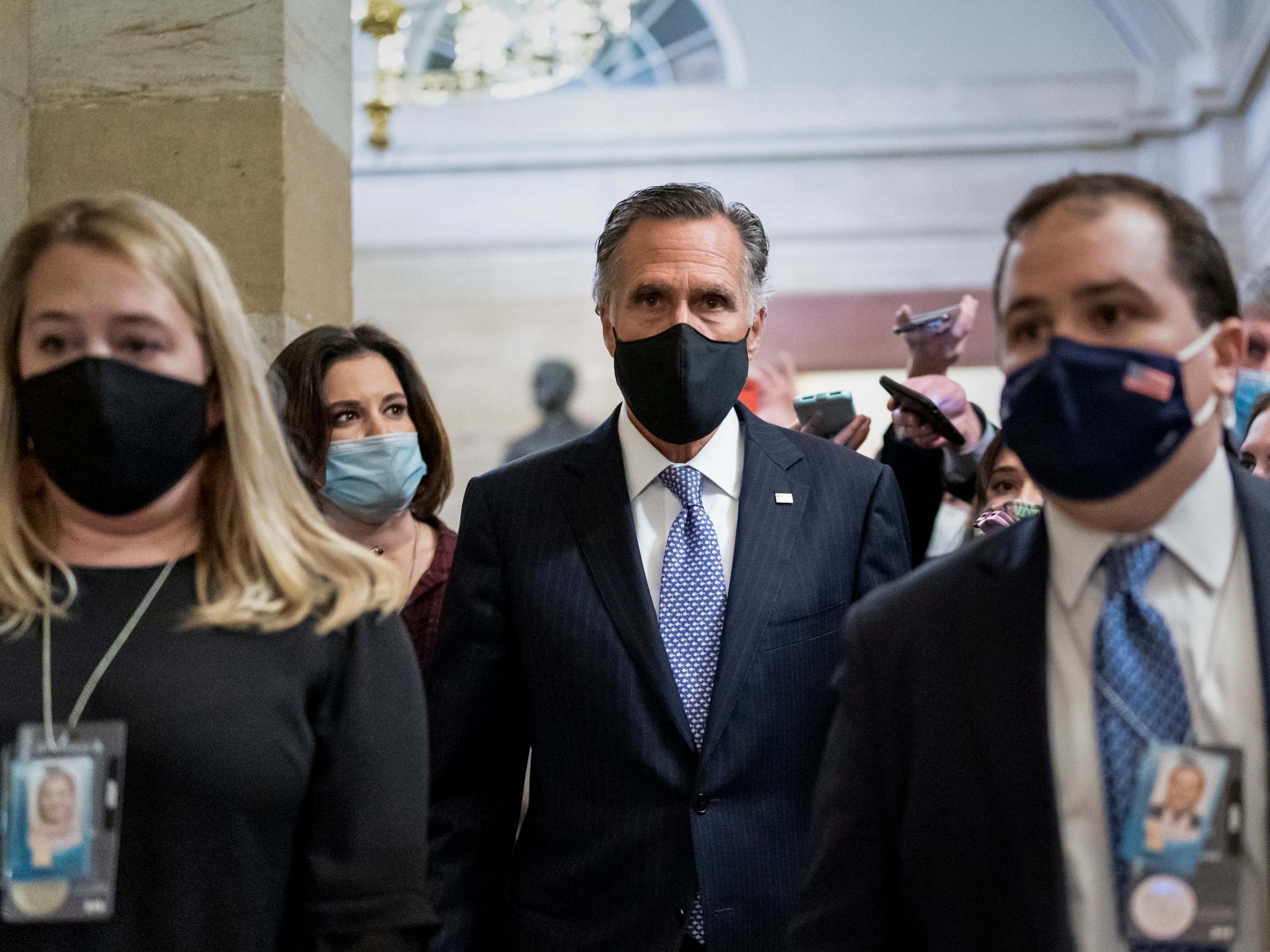The Independent's journalism is supported by our readers. When you purchase through links on our site, we may earn commission.
The ‘moderates’ in the US Senate aren’t who you think they are
We are constantly told certain Republicans and Democrats are centrists, but when you pick apart the facts, it becomes quickly obvious that that’s nowhere near the truth


Your support helps us to tell the story
From reproductive rights to climate change to Big Tech, The Independent is on the ground when the story is developing. Whether it's investigating the financials of Elon Musk's pro-Trump PAC or producing our latest documentary, 'The A Word', which shines a light on the American women fighting for reproductive rights, we know how important it is to parse out the facts from the messaging.
At such a critical moment in US history, we need reporters on the ground. Your donation allows us to keep sending journalists to speak to both sides of the story.
The Independent is trusted by Americans across the entire political spectrum. And unlike many other quality news outlets, we choose not to lock Americans out of our reporting and analysis with paywalls. We believe quality journalism should be available to everyone, paid for by those who can afford it.
Your support makes all the difference.If the US Senate’s long-awaited bipartisan infrastructure proposal fails to materialize this week, it should come as little surprise to anyone familiar with the 10 “moderate” lawmakers negotiating the package.
That’s because most of them — ahem — aren’t actually moderates.
More than four weeks after negotiators announced an agreed-upon “framework” for a deal worth $1.2 trillion, Democrats and Republicans on Capitol Hill have yet to actually finalize it and put their ideas into legislative text. In the meantime, DC media outlets have succumbed to a lazy reporting habit to describe the drama’s key players.
A recent edition of Politico’s “Playbook” lumped Utah Senator Mitt Romney into a “core trio of moderates” along with fellow Republican Senators Rob Portman of Ohio and Susan Collins of Maine. And in April, the Wall Street Journal reported that “centrist” West Virginia Senator Shelley Moore Capito was leading the GOP in talks with the Biden administration about infrastructure.
This is Mitt Romney we’re talking about. Mitt Romney — whose social conservatism, promises to repeal Dodd-Frank and Obamacare, and commitment to oil and natural gas carried him to the 2012 Republican presidential nomination. Since when did he become a moderate?
And what exactly in the record of Shelley Moore Capito, who voted to repeal Obamacare in 2017 despite publicly recognizing the 2010 health care law’s overwhelmingly positive impact in her state, makes her a “centrist”?
It gets worse.
Reuters reported in January that “ten moderate Republican US senators” were urging Joe Biden to scale back his $1.9 trillion Covid relief package (which ultimately passed at that price tag on a party-line vote). Among the Republicans Reuters collectively characterised as “moderates”: Indiana’s Todd Young, the Senate GOP’s campaign chairman last cycle, one of the most partisan posts in Washington; Kansas’ Jerry Moran, who not only signs his name on congressional letters in Comic Sans but has been one of Mitch McConnell’s most reliable votes since arriving to the Senate in 2011; and South Dakota’s Mike Rounds, whose list of notable bipartisan achievements could fit neatly in a quick scrawl on the back of one’s palm.
Dabbling in bipartisan footsie does not make one a moderate or a centrist, especially when such behavior is obviously a tease, as was the case with the GOP’s short-lived Covid relief negotiations with the nascent Biden administration this past winter.
Neither does supporting Donald Trump’s impeachment make a moderate hero of Romney or Senator Bill Cassidy of Louisiana or Ben Sasse of Nebraska or any of the other four Republicans who voted “guilty” at the ex-president’s trial in February. Trump incited a deadly riot at the Capitol to stop Congress from certifying President Biden’s electoral victory, then did nothing for hours to stop the violence. There is no spectrum for that kind of tyranny, no middle-of-the-road stance: You either tolerate it (as McConnell and 42 other Republican senators did) or you don’t.
The truth about the 117th Congress is that there are only four to six senators total who could be described as centrists or moderates, depending on how you feel about the likes of Portman and Democratic Senators Mark Warner of Virginia and Chris Coons of Delaware.
The crumbling infrastructure talks have laid bare once again the new reality in Washington: moderates and centrists are a dying breed.
So, what (and who) is a moderate/centrist?
I characterize moderates as those politicians with a certain pragmatic, inclusive governing approach. They are “process” junkies, lawmakers who elevate a given proposal’s ability to gain bipartisan support to the same level of importance as the bill’s actual substance. The only remaining Democratic senators to whom this label can be attached with certainty are Joe Manchin III of West Virginia and Kyrsten Sinema of Arizona. Both senators have steadfastly refused over the first six months of the Biden administration to scrap the Senate’s traditional 60-vote threshold for legislation — known as the “filibuster” rule — that has allowed Republicans to stall large chunks of Biden’s agenda in a 50-50 Senate.
Even Coons, often lauded in Washington for his cross-aisle collegiality (and rightfully so), has failed the filibuster purity test, suggesting that Democrats might move to curtail the 60-vote threshold if Republicans keep blocking Biden’s priorities, as they did in June to Democrats’ sweeping voting rights proposal. “If all of these come to the same end as the efforts around voting rights, where it’s blocked 50-50, that’ll sharpen the focus on the filibuster,” Coons said in a recent interview with NPR.
There are, of course, degrees of moderatism. Warner of Virginia, an independently wealthy pro-business Democrat, has stepped out of the shadows into a prominent go-between role for the ongoing infrastructure negotiations, both between the parties and within his own. Senate Budget Chairman Bernie Sanders, a Democratic socialist, wanted north of $6 trillion for the Democrat-only portion of the package, but Warner helped whittle that down to the $3.5 trillion price tag the Democrats settled on in June. He was also instrumental in resuscitating bipartisan talks last year that eventually resulted in another $900 billion in federal Covid relief.
But while Warner has flashed a moderate streak, he is not what can properly be termed a centrist. A centrist is an actual policy ’tweener, someone whose favored policies — matters of process and politics aside — truly tack towards the middle.
Manchin is a centrist: a pro-gun, pro-coal, anti-immigration Democrat who also happens to be one of Obamacare’s most vocal champions. Sinema, who voted against the $15 minimum wage earlier this year and opposes the estate tax on the wealthiest Americans, has significant centrist tendencies, though not to the same degree as Manchin.
Collins of Maine and Senator Lisa Murkowski of Alaska are the closest any Republicans come to centrism. Both claim to support the landmark Roe v Wade Supreme Court case granting women abortion rights (their voting records on Trump’s judicial nominees tell a different story). Collins has voted to uphold Obama-era environmental regulations and campaigned (unsuccessfully) to curtail oil drilling in Alaska’s Arctic National Wildlife Refuge. Murkowski is one of the few Republicans who supports a pathway to citizenship for Dreamers.
That’s it for the centrists.
The shift away from a regional and geographic-based political framework towards a national one, as well as the proliferation of highly-organized, well-funded outside interest groups on both the right and the left have contributed to the demise of centrists.
Case-in-point: Georgia, where Senators Raphael Warnock and Jon Ossoff, a Black pastor and a 34-year-old Jewish former journalist, defeated a pair of Trump-hugging conservative incumbents on an uncompromisingly mainstream liberal platform in the 2021 runoffs. Vats of digital ink have already been spilled on Stacey Abrams’ influence from the outside galvanizing Black voters on the issue of voting rights, so I won’t add more here.
Georgia is not a purple state, for there is little mixing of its red and blue elements. Centrism and moderatism increasingly play to neither party’s political advantage, in the Peach State nor elsewhere. Democrats learned that the hard way in the 2018 midterms, when their centrist block was toppled by a trio of staunch conservatives. In Missouri, Senator Claire McCaskill lost to an upstart state attorney general named Josh Hawley (yes, that twerp). North Dakota’s Heidi Heitkamp and Indiana’s Joe Donnelly, another pair of Democratic moderates, fell by wide margins to true-blood conservatives Kevin Cramer and Mike Braun.
To borrow a term from veterans of Capitol Hill, there are a handful of other remaining “serious legislators” who to their credit are constantly working across the aisle to find common ground on bills because they recognize the need for bipartisanship to pass most bills in the Senate. Portman, the Ohio Republican retiring at the end of his current term, is the GOP’s closest analogue for Warner: a serious legislator who has found himself at the centre of most of the recent bipartisan negotiations on Covid relief and infrastructure. Romney and Pennsylvania’s Pat Toomey have proven their sincerity in dragging major bipartisan legislation across the finish line, as have Democrats John Tester of Montana, Tim Kaine of Virginia, and Coons of Delaware.
So let’s be clear: Wielding the bare minimum of legislative pragmatism does lend these lawmakers more credibility when they go home to tell their constituents about the work they’re doing in Washington.
But it doesn’t make them moderates.
Join our commenting forum
Join thought-provoking conversations, follow other Independent readers and see their replies
0Comments